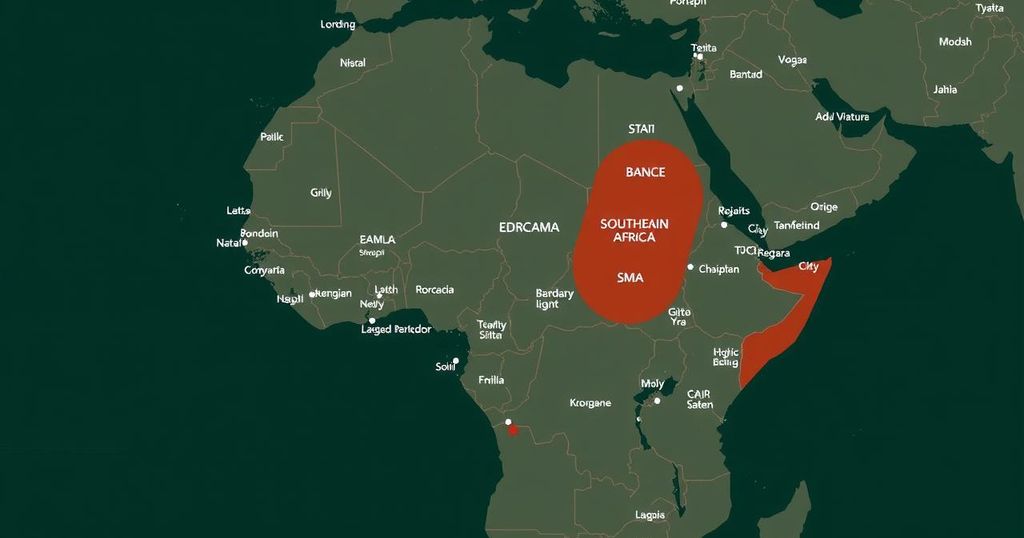Exploring the Debt-Education Nexus: Insights from Zimbabwe, Eritrea, South Sudan, and South Africa
This analysis investigates the critical link between public debt and educational access in Zimbabwe, Eritrea, South Sudan, and South Africa, highlighting how fiscal challenges and governance failures impede educational quality. It underscores the necessity for effective debt management practices to free resources for education and suggests a reevaluation of priorities centered on sustainable development and human rights.
The intricate relationship between public debt and the right to education has been extensively explored in various contexts, particularly in countries such as Zimbabwe, Eritrea, South Sudan, and South Africa. Each of these nations has faced unique scenarios where financial constraints and governance issues have impeded access to quality education. This analysis demonstrates how the burden of debt can severely limit educational investments, ultimately affecting long-term development and the realization of educational rights.
In Zimbabwe, the long-lasting repercussions of hyperinflation and poor economic governance have critically restricted the government’s capacity to invest in public services, particularly in education. The overwhelming debt load has led to resource diversion away from essential educational services, deteriorating the quality of the education system. Insufficient funding has resulted in inadequate infrastructure, poorly trained teachers, and discouraging enrollment rates, especially in rural areas. Consequently, the prospects for Zimbabwean children’s education remain bleak, which in turn impairs national progress.
Conversely, Eritrea exemplifies a situation where self-reliance and isolation have severely restricted resource allocation for education. The prevailing trend of prioritizing military expenditures over essential social services leads to notably diminished educational access. Additionally, the compulsory national service disrupts educational progress for many youths. Eritrea’s lack of financial resources and international support exacerbates these conditions, necessitating a reevaluation of resource allocation priorities to revive educational opportunities.
Moreover, South Africa, despite its relatively strong economy, grapples with the lingering effects of apartheid on educational equity. The existing disparities in educational quality between various socio-economic and racial groups present a significant challenge. Although strides have been made in enhancing access, financial constraints, political difficulties, and corruption within government institutions continue to impede effective resource distribution. As a result, South Africa’s educational system is plagued by overcrowding and inadequate resources in numerous schools, reflective of broader socio-economic challenges.
South Sudan faces particularly acute challenges, entangled in corruption and conflict which have led to overwhelming debt that detracts from vital educational funding. Even with considerable oil revenues at its disposal, poor resource management prevents the establishment of adequate educational infrastructure. The budget allocation for education is minimal, with significant resources consumed by debt repayment. Coupled with rampant tax evasion, this situation further exacerbates systemic educational depravity.
The interplay of debt and education across these nations highlights the pressing need for comprehensive debt management strategies, not solely at the national level but also amongst lenders. The unsustainable nature of debt for many countries directly influences their capacity to invest in future generations. Adopting effective debt management practices can release crucial funds for education, leading to enhanced infrastructure and ample teacher training opportunities.
The article analyzes the intersection of public debt and education rights, primarily focusing on case studies from Zimbabwe, Eritrea, South Sudan, and South Africa. It elaborates on how economic policies and fiscal pressures hinder educational quality and access, thus affecting the overall development of these nations. The discussion seeks to provide insights into the complex dynamics between governmental debt management and the imperative need for education, framing it within international legal contexts and sustainable development goals.
In conclusion, the relationship between debt and education presents a multifaceted challenge that requires meticulous consideration of governance and economic policies. The experiences of Zimbabwe, Eritrea, South Sudan, and South Africa reveal the urgent need for tailored debt management strategies that prioritize educational funding. By addressing issues of debt sustainability and ensuring transparent governance, nations can safeguard their educational commitments, paving the way toward equitable and sustainable development.
Original Source: www.amnesty.org




Post Comment